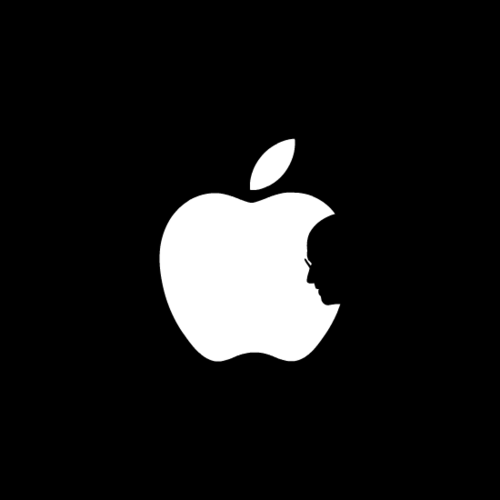As I’m sure you’ve heard by now, Apple founder and visionary Steve Jobs died earlier today. I’ve been a huge admirer of Jobs for a long time, and I knew he had been battling health issues, but I still found myself surprisingly affected by the news of his death.
In thinking about it, I realized Jobs may be the single most influential person in my life who I never actually met.
I got my first computer when I was 13-years-old and it was a Mac. I had always thought of myself as a creative person and when I first got the computer I imagined it would inspire me to write books, or novels, or movies, or whatever else I thought at the time I’d be magically motivated to do if I had a computer in my bedroom.
Of course, none of that ever materialized. Turns out I didn’t have as much to write about as I thought I did.
However, there was something about that computer – and perhaps more importantly the fledgling Apple brand that Jobs was developing around it – that captured my attention. I was far from a computer geek and I had no interest in tinkering with the internal engineering of my Mac (the way Jobs himself would have done when he was a teenager) but I was nonetheless fascinated by it and its potential.
That interest grew in the years that followed as I became a diehard Mac fan, having fierce debates with my friends who (like the majority of the country) were all Microsoft and PC users.
I kept buying Macintosh computers and continued to sing their praises to anybody that would listen – even as the company was crumbling. I knew Steve had built a better product, but I couldn’t figure out why the rest of the world didn’t see what I saw. In retrospect, I guess it taught me that in business sometimes you need to do more than just be better.
By the time Jobs returned to Apple, I was old enough to pay more attention to what he was doing and to see how he started to turn the company around. I watched him cut the product line, focus on simplicity and design, and launch the brilliant Think Different branding campaign. I watched him release the colored iMacs and challenge the assumptions of what a computer could be.
And I watched it all work.
I saw what was possible when creative people influenced technology and when those same people allowed technology to influence them. And I started to become interested in and obsessed with the way technology was changing the creative world.
As the years went by, I became more and more focused on the merger of creativity and technology that Jobs seemed to represent. I taught myself how to blog, how to build websites, how to do marketing, and honed my skills for more than a decade. When I launched my first blog more than a decade ago, I had no idea that it would start me on a journey that ultimately led to a new career in a field that didn’t even exists when I was graduating college.
Finally, a couple years ago when Jobs had already conquered the world on the back of inventions like the iPod, iPhone, and iPad, I went looking for more inspiration from him and read a book titled Inside Steve’s Brain. At the time, I rarely read books, but for some reason was drawn to that one. Sure enough, it was fascinating.
Many of the ideas in that book inspired and informed the launch of my own business, Connected Comedy. Jobs had once again influenced my life in a profound way.
To this day, Steve Jobs’ description of creativity (as detailed in that book) is the best I’ve ever heard:
“Creativity is just connecting things. When you ask creative people how they did something, they feel a little guilty because they didn’t really do it, they just saw something. It seemed obvious to them after a while. That’s because they were able to connect experiences they’ve had and synthesize new things. And the reason they were able to do that was that they’ve had more experiences or they have thought more about their experiences than other people.
“Unfortunately, that’s too rare a commodity. A lot of people in our industry haven’t had very diverse experiences. So they don’t have enough dots to connect, and they end up with very linear solutions without a broad perspective on the problem. The broader one’s understanding of the human experience, the better design we will have.”
I remember reading that quote and thinking that it was the best description of the skill set I always knew I possessed but didn’t quite know how to describe. Suddenly, it made sense.
So today, when I heard that Jobs had passed away I felt it more than I thought I would have. I realized that while I had never met him, he had not only given me the tools to create a career for myself, but had also provided a blueprint for success.
Steve Jobs created a world that allows me to do work I’m passionate about.
Thanks, Steve.
By the way, if you’ve never watched Steve Jobs’ 2005 Stanford commencement speech, you should definitely take a few minutes to watch it now:

One Comment
He was a most extraordinary human and and one divine soul…….